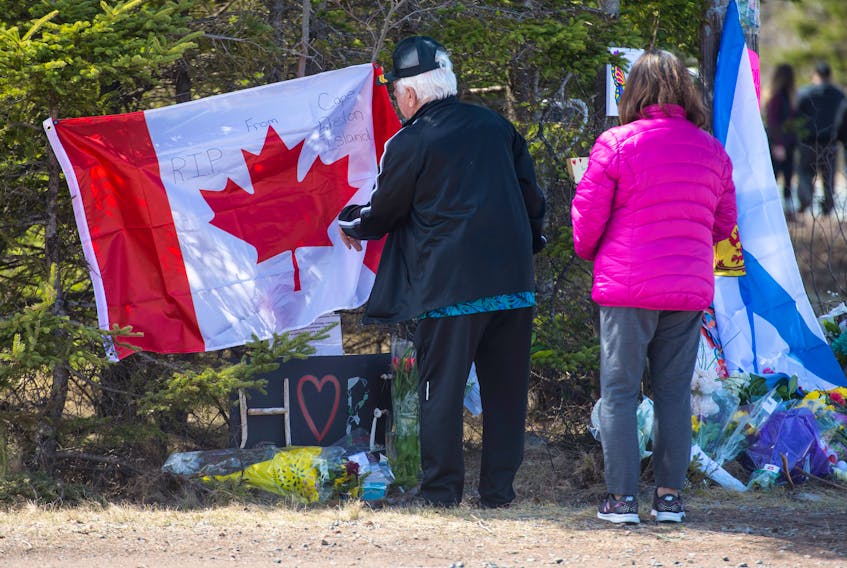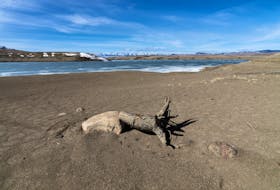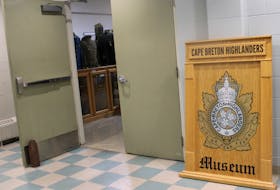An independent public inquiry is the only way to get to the bottom of the largest mass murder in the country’s history, says a Dalhousie University law professor.
“There probably will be overwhelming public pressure on the province’s attorney general to do so, and there should be," said Archie Kaiser, an expert in criminal law and procedure. "The broader issues that this tragedy raises can only be properly explored through an independent, thorough and well-resourced public inquiry to look at all the facts of this case.”
Nova Scotia Attorney General Mark Furey has the power under the province’s Fatalities Investigations Act to call an inquiry if he thinks it’s in the public interest or the interest of public safety.

The process calls for the chief judge of the provincial court to appoint a judge to conduct the public probe that would end with recommendations being made to the government.
The late Federal Court of Appeal judge Allen Linden once said the difference between a public inquiry and all other types of investigations is that it is truly public.
"It investigates a matter of public interest, in public view, and with the participation of the public," Linden said.
Questions remain
Right now, only the RCMP and the province’s independent police watchdog, the Serious Incident Response Team, are investigating last weekend’s shooting rampage that left 22 Nova Scotians dead, including a Mountie, plus the gunman.
Serious questions remain about how it was possible for a 51-year-old denture fitter to carry out unprecedented carnage over a 13-hour span and why a potentially life-saving emergency alert system wasn’t used while the tragedy unfolded.
Those and other questions might have been answered publicly in the courts had the gunman survived. But the facts and causes of the tragedy still need to be examined in a public forum, said Kaiser, with the aim of preventing such a large-scale disaster from happening again.
“At this stage, it would behoove the attorney general and other leaders of government to start making a list of concerns that will require further investigation and that could be part of the terms of reference of a public inquiry.”
Furey, who was an RCMP officer for 32 years, declined to be interviewed about the investigation. But Justice Department spokeswoman Barbara MacLean said in an email that it’s “premature to even consider a public inquiry so early in what we know to be a most complex and horrific investigation.”
She said the RCMP and SIRT need time to conduct and complete their investigations.
SIRT's involvement
The investigation of the RCMP’s handling of the shooting spree is not entirely clear. SIRT is probing two particular incidents, including the fatal shooting of the gunman by police at a gas station in Enfield and the actions of two RCMP officers who opened fire on the Onslow Belmont firehall on Sunday morning while it was being used as a registration centre for evacuees from the nearby crime scene.
The police watchdog issued a news release Monday saying the RCMP asked SIRT to look at a third incident, but the request had been denied on the grounds it "would be best investigated by the RCMP."
The Chronicle Herald made several inquiries with the RCMP to find out more information about the incident in question, but didn’t get a response.
Questions have been raised about the independence of SIRT. While the group’s acting director, Pat Curran, a former provincial court judge, provides an independent and outside perspective, the group's investigation team consists of current and former police officers.
The mandate of SIRT is also narrow in that its investigations determine only whether an officer’s use of force is justified. The decision to lay a criminal charge is made by the director of SIRT. Only summaries of SIRT investigations are made public and they contain no recommendations that might guide improvements to police procedures or policies.
Those reviews — an internal RCMP probe and SIRT investigations — will fall short of the comprehensive review needed in this case, said Kaiser.
“SIRT has a vital role to play in maintaining the integrity of policing in Nova Scotia, but their mandate is narrow, and a properly constituted inquiry has unlimited scope to investigate the issues and make recommendations," said Kaiser. "A tragedy of this scale demands a thorough public exploration that can't be left to the RCMP or the SIRT office."
A public inquiry is underway into the 2017 deaths of Afghanistan war veteran Lionel Desmond and his family. The province announced the probe nearly a year after the murder-suicides happened at the former soldier’s home in Upper Big Tracadie.
Two of Desmond’s sisters led the high-profile campaign calling for an inquiry. While the inquiry will examine the circumstances of those deaths, it will answer crucial questions, including whether Desmond and his family had access to the appropriate mental-health and domestic-violence support leading up to their deaths.
Before the Desmond probe, the last public inquiry held in Nova Scotia was a decade ago, in 2010. That public probe examined the jail-cell death of Howard Hyde, who had a history of mental illness.
The inquiry produced a report containing 80 recommendations, calling for bureaucratic changes in the provincial health and justice departments, more funding for all levels of mental-health care and more training for police.
Wayne MacKay, also a Dalhousie law professor, said he would be shocked if the province didn’t call a public inquiry in response to the tragedy that unfolded over the weekend.
“It’s pretty safe to assume, given this is the largest mass killing in Canadian history, there will be a full-scale public inquiry involving both provincial and federal authorities to get to the bottom of how this tragedy played out,” said MacKay, an expert in constitutional and public law.
Public alert
Like many Nova Scotians, MacKay is concerned that the province opted not to send out a public alert during the gunman's rampage, given that just over a week before, a text alert was issued advising people to stay inside over the Easter weekend.
Premier Stephen McNeil seemed to blame the RCMP for the oversight during a news conference Tuesday. McNeil said the province was eventually in a position to issue the alert, but didn't get the go-ahead from the RCMP to do so.
On Wednesday, Chief Supt. Chris Leather said RCMP were in the process of drafting an emergency alert when the gunman was shot and killed in Enfield on Sunday.
Regardless, MacKay said the province should have issued the alert, and both the premier and the RCMP should take some responsibility for not doing so. He said this is just one of the many serious issues that a public inquiry must address.
"It’s quite surprising that a mere couple of weeks ago, we got a very extensive provincewide COVID-19 alert asking us to stay home, and there was no equivalent alert when a gunman was on a rampage over a long period of time threatening the lives of many Nova Scotians," MacKay said.
"The question left with many Nova Scotians was why there was not an equivalent alert to try to ensure that as many lives as possible were protected?”
Ultimately, a public inquiry is what is needed to unearth all the factors that led to the mass killing, he said, and to give Nova Scotians the reassurance that it will never happen again.
"It’s important to ask these questions and get to the root causes, to see whether, in fact, we can do things better in the future to avoid the loss of life."









